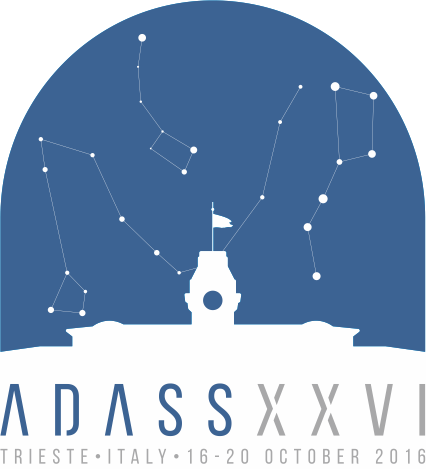Londero Elisa
Contact
- Position:
- INAF – Osservatorio Astronomico di Trieste, Trieste
- Address
- Italy
Miscellaneous Information
- Miscellaneous Information
-
Abstract Reference: 30978
Identifier: P4.8
Presentation: Poster presentation
Key Theme: 4 Long-term Management of Data Archives
Asiago astronomical archive: status and featuresAuthors:
Londero Elisa, Zorba Sonia, Molinaro Marco, Knapic Cristina, Tomasella Lina, Frigo Aldo, Riccardo SmaregliaGeographically distributed archives present challenges when ingesting and delivering large amounts of astronomical data. The main issues are related to remote control and configuration, monitoring and logging anomalous conditions, fault tolerance and error handling.
The New Archiving Distributed InfrastructuRe (NADIR) developed and implemented within the Italian Astronomical Archive (IA2) project, has shown to be able to overcome successfully these issues. NADIR is currently installed and working at the Large Binocular Telescope Observatory (LBTO) and at Telescopio Nazionale Galileo (TNG) and is scheduled to be installed at Asiago Observatory in the near future.
In order to speed-up the distribution process, the archiving system planned for Asiago Observatory will consist of a temporary archive and a web interface to access the archive directly on site. The temporary archive (storing data less than three months old) will be available only from within the local LAN at the observatory and its aim is to enhance the local usability of the service.
The main (public) archive will be hosted in Trieste. This archive will be managed by the metadata and data importer and exporter branches of NADIR which are in charge of exporting the files from the acquisition site and importing them to remote sites.
The access to the archive is made possible through a web application installed both locally at the Asiago site and publicly in Trieste. The web interface allows public and private access to the resources via traditional queries on the main instrumental and observing parameters. The query result is also exportable via SAMP protocol to the Virtual Observatory compliant clients (Aladin, Topcat). User authentication will be performed using the EduGain federation.



